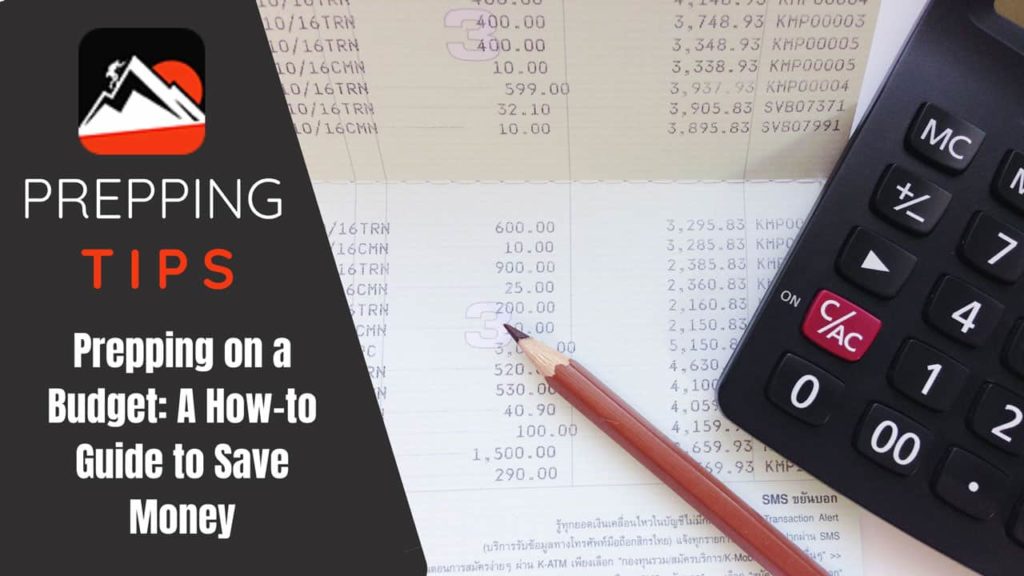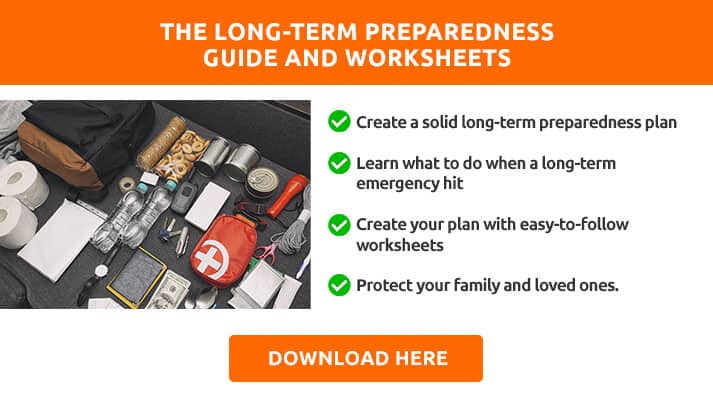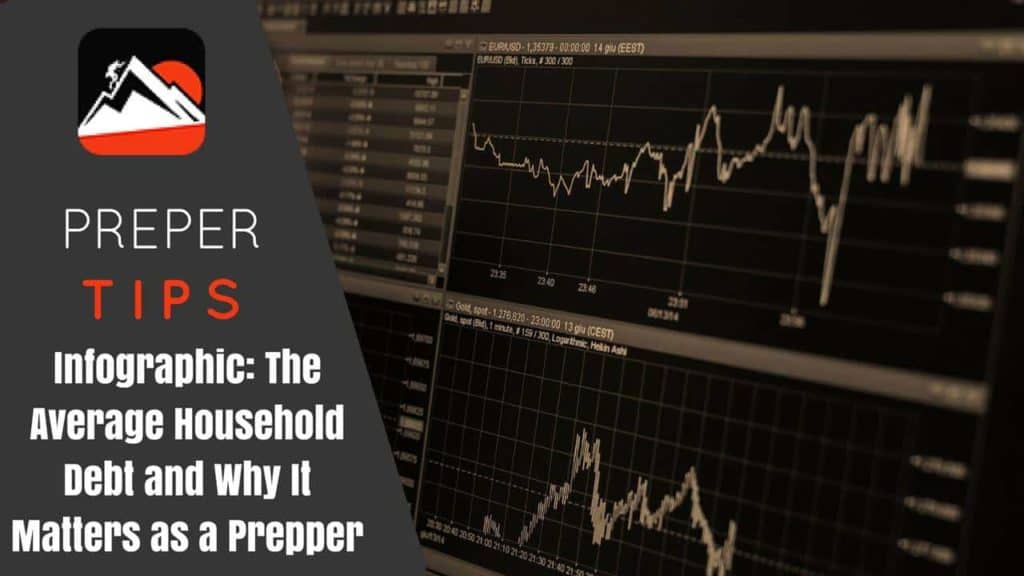Contents
We’ve all seen the news about how an ice storm knocked out the state of Texas. Even though hurricanes and other disasters routinely hit this state, many were still unable to cope with the loss of power, food, and water. If there are three things we can learn from Texas it is this:
- You never know where or when a major disaster will strike or what form it will take.
- The longer you wait to prepare for a disaster, the more likely it is you will suffer the consequences of not being ready.
- No matter how tight your budget is, failing to get ready for a disaster right now will cost you more in the long run.
Regardless of where you live or what your situation is, it will be to your advantage to put some items and skills together that you can use in a time of need.
Start with a Prepping List
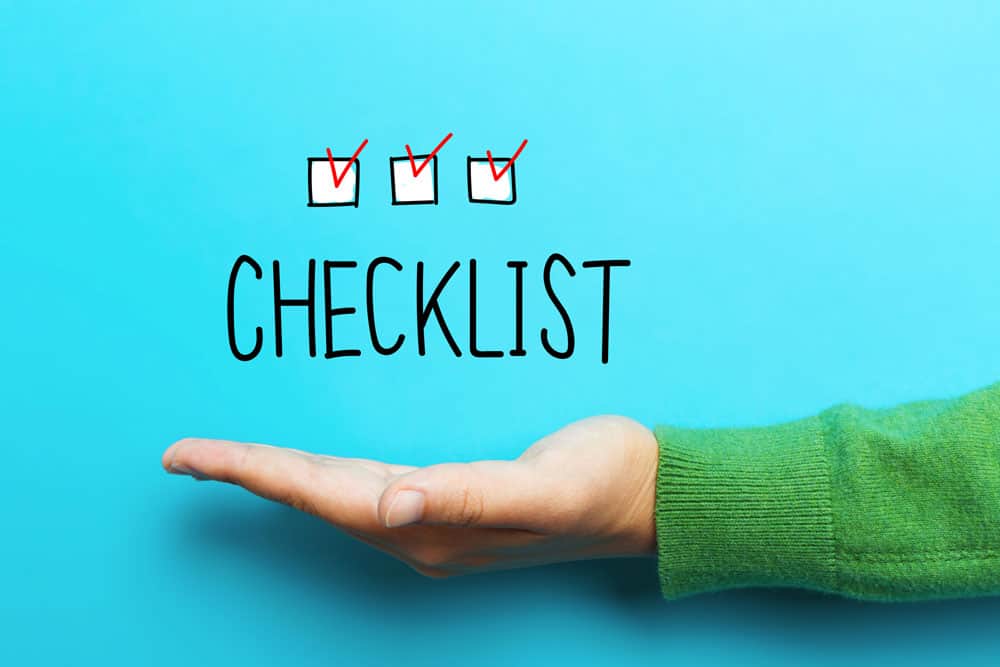
Before you begin buying supplies, books, and taking classes, it is important to know what your goals are and what you will need to achieve them. On the surface, survival sounds pretty simple. Sadly, just a few hours without electricity or water can teach you very quickly just how complicated it can be.
In fact, even if you are an avid camper, or have been prepping for years, you are likely to be surprised at how many things you left out, never tested, or can’t find when you need them. This is why having a prepping list is very important. You can keep your list in a simple wire bound notebook.
Set aside a few pages for each of the main areas of survival. This way, as you add items and lists to each category, there will also be plenty of room to note:
- your progress on each item
- inventory
- inventory check date
- maintenance notes
- other important information
You might also find interesting our article about how to survive the pre-currency collapse.
Develop a Resource Saving Strategy
Prepping on a budget isn’t just about finding ways to save money. You will also need to save space (for your tools and supplies), time to learn and develop various skills, and figure out how to rotate your supplies so that nothing goes to waste.
After you complete your list, it is very important to assign each item to a priority category. For example, even though a power generator may be on your list, it may not seem very important right now. On the other hand, six months from now, you may want to bump that item into the top 10, or even top 5 items.
I like to take sticky notes and then attach them to card stock with different priority label headings. This way, it is very easy for me to take the sticky notes and move them from card to card without having to rewrite everything. Then, I can always refer back to my master journal list as needed to make sure I still have a good grasp of the whole project.
Saving Money and Tips for Stretching Your Budget
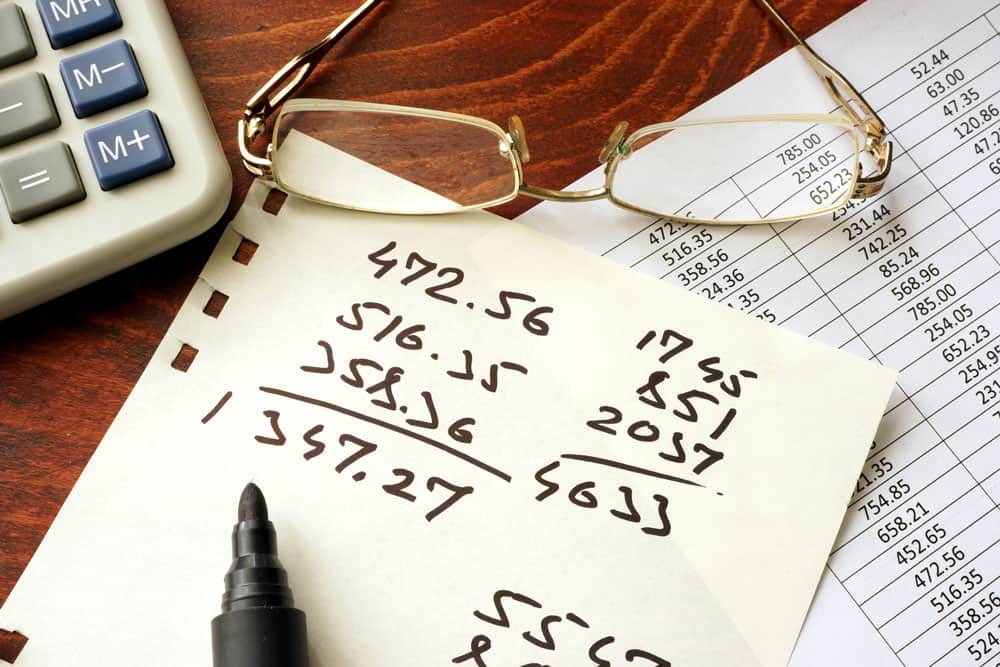
The easiest method is often referred to as the Snowball Method. Basically, you set aside a certain amount of money that you will use for a particular goal. This goal is divided into smaller goals that may cost different amounts of money.
Let’s say you want to buy enough food to last a year, a solar power generator kit, and take a good quality emergency medicine course. Once you know how much you can spend each week or month, apply some of that money to each of your goals. After you complete one goal, apply the “extra” money in your budget to the next lowest priced item on your list.
Another big part of saving money involves using your resources wisely. Here are some main areas where you are likely to spend a good bit of money, along with some ways to make sure you are using your money to the best advantage.
- Food – Try to avoid pre-packaged and heavily processed foods. These are all very expensive compared to what you can make for yourself with a dehydrator and a few reusable silicon bags. If you can grow things like carrots, mustard greens, beans, and potatoes, you can also preserve them and save even more money.
The other thing to avoid when it comes to food is buying things you don’t normally eat. Don’t waste your money and space on a case of Pork and Beans if you can’t stand the taste of them and only want them for an emergency. Sadly, modern cans rust very quickly. Even if you have plenty of ventilation around them, they will rust out right around the time stamped on the can for the “best used by date”.
You are much better off having extra on hand of what you normally eat, and then just go along with your normal routine. With the exception of shifting to dehydrated or home canned options, there should be very little difference in what you eat now and what you will eat during a crisis.
- Water Purification – A busted pipe can cause an entire home to be condemned because of excess water damage created by the water pressure and volume set free of the municipal water system. To add insult to injury, water supplies might be poisoned or made unsafe in other ways by hackers.
All of this points to the need for household-based water independence and purification. Many areas have laws against rainwater capture. It is essential to vote out, investigate, and demand recall of all politicians associated with those laws. From there, make it your business to vote in politicians that will change those laws to something more amenable to common sense water management for consumers.
Insofar as water purification, never trust what comes out of the tap. Unfortunately, the more advanced resins are not cheap. I recommend building your own filtration system so that you can control all of the media involved in the filtering. In this case, start with sand, activated carbon, and bone char. From there, you can look into other resins and locate ones that can be reused or maintained more easily than what you would get in a disposable filter.
- Sanitation and Hygiene Items – If you remember the toilet paper shortages, then you can easily see why it is important to figure out a better way to manage sanitation.
The cheapest and easiest thing you can do is start using family cloths. Just make sure you also have resources to disinfect them. There are also reusable female hygiene products that will save you money now, and be of use in during a crisis.
Making your own soap is also an important skill to have. Even though lye made from ashes is not as strong as commercial lye, you can still use it to make soap.
If you are planning to set up a panic room, it may be of some use to make or purchase a composting toilet. Now is a good time to test out different materials for the absorbent so that you will not have to worry about odor and other problems.
- Medical and First Aid – If you are thinking about stockpiling medications, it is important to know how long each drug will remain potent. There is no point in storing away several years’ supply of a drug when it will only work for 1 year.
Unlike food, medical supplies are one area where you should store away things you might not use routinely beyond testing to see if they will work for you. For example, you can substitute oils and herbs for various drugs. In the long run, it is best to grow the plants yourself and then make your own oil infusions. Depending on the herb, they may only last for about 6 months, so you will need to refresh your supply often.
- Decentralize Heating and Cooling – If you’ve ever had the air conditioning go out in the middle of the summer, you know what a nightmare that can be. While centralized heating and cooling may be convenient, they can be very hard to fix during an emergency.
No matter whether the main unit is located under the house where you can’t get to it, or you don’t have the necessary tools, it can cost a fortune on top of time without heating and cooling.
Admittedly, decentralizing is not an easy task. You will need to develop a series of systems that can be used in place of what you already have. For example, you may start off with swamp coolers to take the place of air conditioners. If you are able to dig out and maintain an ice house, then you will also have enough ice on hand without the need for electricity-based refrigeration.
With regards to heating, you can try tin can solar heaters, candle heaters, and other devices. It is also very important to look into passive heating and cooling methods so that you need as little energy as possible to keep the temperature in your home stable.
- End Reliance on Commercial Power – Sadly, this is also another item on your list that will be challenging to achieve. It is very important because the commercial power grid is in very bad shape. The fact remains that renewable, nuclear, and fossil fuel-based power generating plants all failed in Texas.
It doesn’t matter what proportion of power came from each resource. The only thing that matters is they all stopped working at a time when they were needed most. And, beyond that, to add insult to injury, people are paying enormous energy bills now on top of the loss of life and wellbeing with no end in sight.
My personal method for getting off commercial power has always involved making slow, but steady progress. Start off with making sure you can power your phone and other small devices with battery packs that can be recharged with solar panels.
If you charge up a few extra battery banks, you can have them on hand for any emergency that comes up. For example, during the last two hurricanes and one ice storm, I had more than enough power to run my tablet, wifi hotspot, and phone.
Solar and wind power can be fickle at best. That all being said, there is nothing like a solar cooker during the summer months to cut back on your power bill. You can also find many plans for building a solar dehydrator, or just use the dashboard of your car.
Ending or reducing reliance on commercial power will also involve choosing devices that can be powered readily using rechargeable battery packs. For example, you can plug a table lamp into a battery pack that supplies enough voltage.
On the other hand, if you have ceiling lights and fans, there is no easy way to cut them off from the main household current. In general, the more mobile the appliance is, the easier it will be to get away from commercial power and shift to battery packs that can be recharged with solar, wind, or other renewable resources.
- Securing Your Assets – Did you know many countries are looking to eliminate paper and coin-based currency? In this scheme, all you will need is your debit card or a cell phone to conduct financial transactions.
As with other centralized systems, however, putting everything on a computer can spell disaster. For example, just recently the US Federal Reserve payment system crashed for several hours. While there are no answers for why it happened, the fact remains all of your money may not be accessible if this or other problems happen.
Under these circumstances, securing your assets may be more difficult than expected. Overall, I would say try to stay away from storing your money in a bank or in currency other than actual coins that have a metal with a tangible value. For example, copper, steel, and other metals can always be bartered and traded. In this case, as strange as it may sound, old pennies may be one of your best options.
- If at all possible, try to eliminate or reduce debt so that you don’t have to worry about making a lot of payments. This might be a time to consider reorganizing through bankruptcy, trading out for a cheaper car, or taking on a boarder that can help you pay down your mortgage faster. The sooner you can get out of debt, the easier it will be to use little to no money.
25 Essential Supplies and Tools
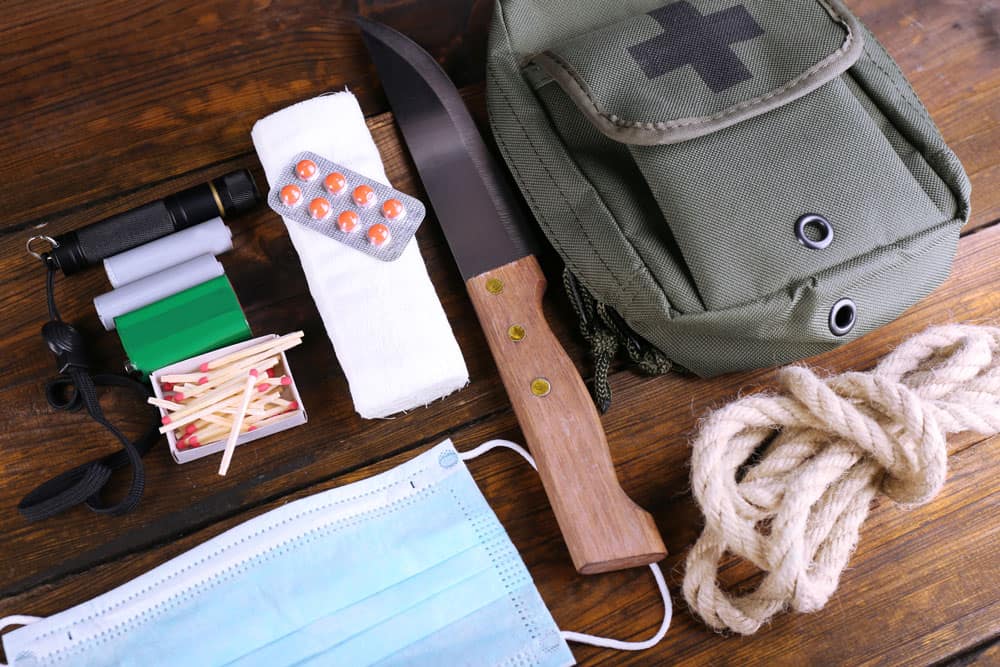
Over the years, I’ve probably revised my own list of Top 25 Essentials several dozen times. This list can be used for bugging in as well as bugging out. While this list may seem very limited, everything changes when the power, water, heat, and cooling systems are unavailable.
At that point, your world will shrink down to a handful of concerns. If the crisis winds up taking weeks or months to resolve, some of the items that may not seem useful right now may be just what you need to help you stay alive and thriving.
- Duct Tape
- Can Forge (you can make one for heating up metal for blacksmithing)
- composting toilet and family cloths.
- sewing kit
- muslin fabric (can be used to make family cloths, slings, and just about anything else fabric based you would need in an emergency.)
- rechargeable batteries and solar power kit
- custom water purifier
- materials for making activated carbon
- seeds and resources for growing your own food
- insect and snail farm (edible ants, crickets, snails, etc).
- Survival Shovel
- Hand saw, hammer, and other basic wood/metalworking tools plus fasteners
- ratcheting screwdriver, nut, bolt, and other fastener kits.
- Bow and arrow kit
- simple fishing gear
- mess kit with basic utensils and campfire cooking gear
- first aid kit and medical supplies (make sure the tools are good quality and will last a long time).
- Unlocked tablet or phone that can be used for accessing the internet and SIM-based phone services. A wifi hotspot may also be very helpful.
- Candles that can be used for heating and cooking. Stay away from 7-day candles. You are better off with pillars, tea lights, votives, and tapers as they will put out more heat.
- LED flashlight and lantern
- Buildable Resins like PC-7 or Bondo Fiberglass options.
- Fast-drying super glue
- safety gear like goggles, good quality breathing mask with activated carbon inserts, puncture-proof gloves, and fire-retardant gloves.
- basics like a pocket mirror, whistle, emergency blanket, magnifying glass, tactical pen, and a pocket knife.
- Starter items like soap, toilet paper, and other disposable items. Later on, you should be able to replace these items with things you make or find using the tools you have on hand and resources around you.
Prepping Tips That Won’t Cost You a Dime
There are two ways to get ready for an emergency without spending money. First, make a plan. Then, look around your house to see what you can repurpose or turn into something more useful. For example, if you do some research on forges, you will see that you can make one from a soup can.
Second, always be on the lookout for innovative ideas. For each area of your plan, look at what homesteaders and others are doing with items they have around the house. It is also important to look back in history. As a case in point, if you have steady running water through your property, see if you can harness that with a water wheel. Along with generating electricity, you can also use the water wheel to drive hammers and other devices.
Look into simple machines and ancient machines developed by the Greeks and Chinese. There may be all kinds of things you can make from old bottles, cans, and other things you aren’t putting to good use.
Focus on Skills, Not Just Supplies
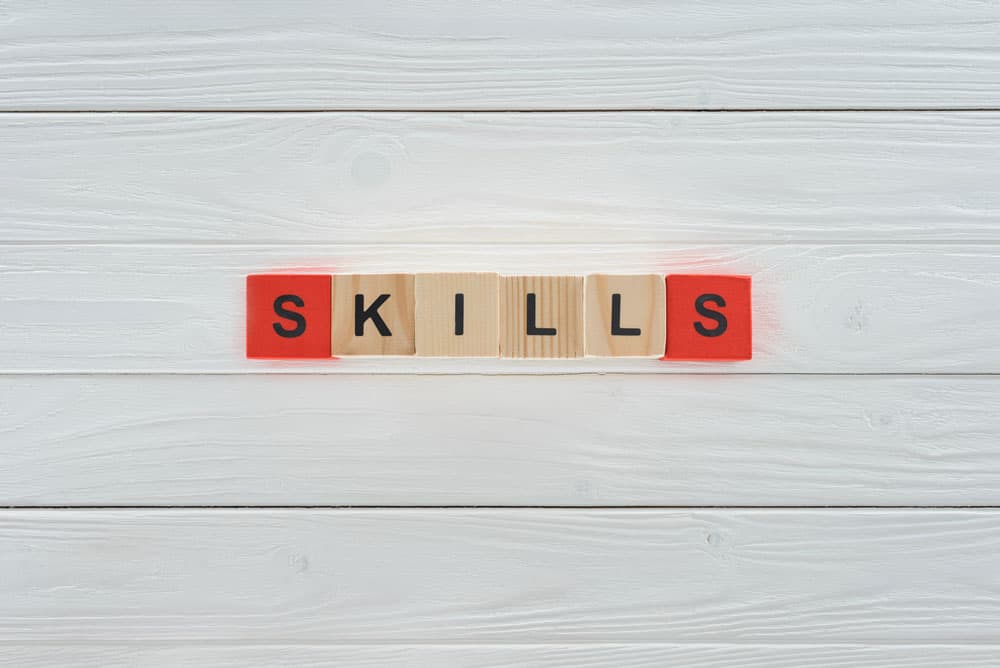
It doesn’t do much good to have tons of supplies and tools if you don’t know how to use them. As with your food stores, make sure that you use tools and supplies on a daily basis. The more comfortable you are living an adaptive life, the easier it will be to manage a crisis.
Today, people waste all kinds of time fighting over whether climate change is real or not. Others spend endless hours trying to prove Covid is a hoax, and other conspiracy theories. On the other hand, ice storms and dead bodies don’t lie.
Conclusion
Now is not the time to sit around and wonder why some really bad things are happening in the world. This is the time to get ready so that you have the best chance possible of surviving a crisis that can come out of nowhere. Starting off with a good plan and a budget system is one thing you can do today.

